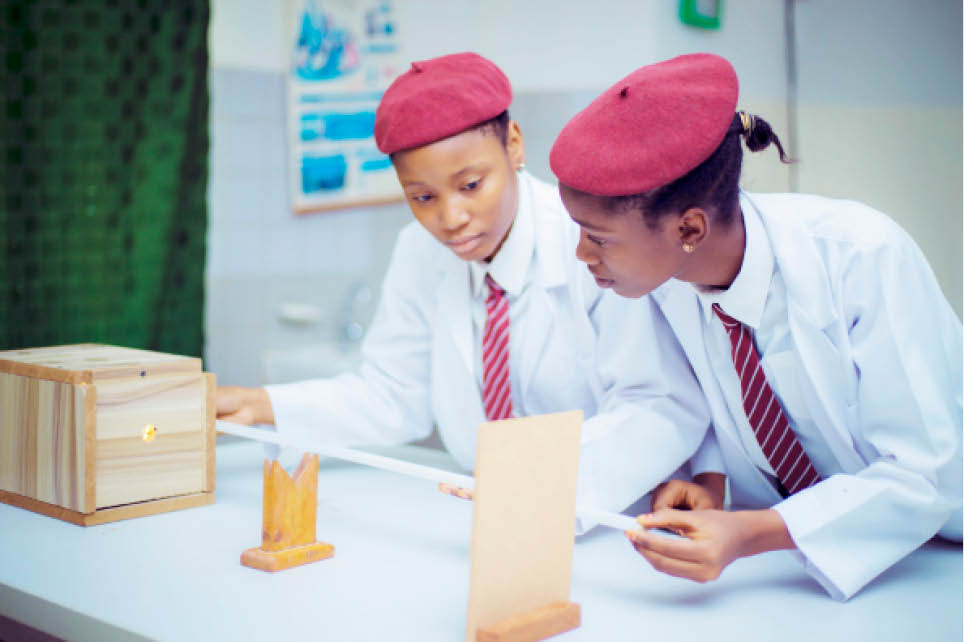How election holidays disrupt schools’ academic schedules
Most private basic and secondary schools closed for one week to enable teachers travel to their localities to vote in the February 16 presidential and National Assembly elections and when the date was shifted to February 23, due to logistical challenges according to the election umpire, almost all schools also extended their election break by […]

Most private basic and secondary schools closed for one week to enable teachers travel to their localities to vote in the February 16 presidential and National Assembly elections and when the date was shifted to February 23, due to logistical challenges according to the election umpire, almost all schools also extended their election break by another week.
In Abuja for instance, a number of private schools were on break for over two weeks; they resumed lessons after election results were announced.
A teacher in Bwari said the schools closed partly because some teachers had to travel to their localities, where they registered with the electoral agency, to vote and partly to allay the fear of parents over post-election unrest.
He said while teachers were given the opportunity to vote, the number of school weeks was disrupted thus, schools were confronted with the challenges of preparing the calendar and planning academic activities afresh.
Unity schools under the Federal Government were given the usual 2-day mid-term break because their students haven’t reached the voting-age, Minister of Education Adamu Adamu said.
At Yandutse College in Nasarawa, Kano, the principal, Mr Onoja Odah, said activities recommenced on February 26 and that the school was not seriously affected by the election holidays as that was converted to mid-term break.
“We were not in break except for the Friday preceding the Election Day declared by government as holiday and the Monday after election. That is basically two working days and we used them as our mid-term break,” he explained.
At CEDAR Presidential Private School, Yankaba, Kano, the vice principal, Mr Opara C. Nicholas, told our reporter that the break has ‘really’ affected the academic calendar because academic activities were suspended until election results were announced.
He said most subjects had teaching shortage as a result of the break and it would be difficult to cover all the topics in the scheme of work.
“We were on break as announced by the government, but after the election we were under duress to wait for some more days because of the fear of what might be the aftermath of the election,” he said
“It affected our calendar and, academically speaking, I don’t think we will be able to complete the topics, but as teachers we know we will be able to apply some skills to cover an ample part of it, if not all,” he added
On his part, the Director, Everest International School, Mr Femi Ademola, said the break dislocated the school’s calendar as majority of the students didn’t return after the break as expected thereby further slowing down a number of lessons.
He said teachers were, in the meantime, made to hold rapid classes to meet deadlines but making sure that the pace at which they are rushing does not affect the students.
He, however, said the school has no plan to announce any break for the governorship and state assemblies elections scheduled for Saturday.
Similarly, school proprietors in Kwara State also complain that the break would force a pruning of academic programmes.
Proprietress of Lamp Bearers Islamic School, Ilorin, Mrs Olubusayo Bello, said the students would one way or the other be affected by the break, adding that the school hasn’t had consistent academic activities for almost three weeks.
“For instance, some of the subjects we offer in our school have double periods on Fridays and because of this consistent Friday holidays, our plan is affected. But we are trying to catch up in the lessons we missed,” she said.
Asked if the school is considering extending the calendar, Bello said, “We are not considering extending the calendar because there is a policy in Kwara State that we must follow the calendar strictly. We can only think of that if the state asks us to add an extra week to balance days we were not in school.”
She further said the break had affected the financial plan of the school.
In his opinion, the proprietor of Greatminds Nursery and Primary school, Agbo Oba, Ilorin, Mr Olarotimi Oshin, said too much or unexpected public holidays affect children’s learning because schools have lesson plans for the whole term.
He said the number of days missed by pupils as a result of the election would be disadvantageous to lesson plans because lots of topics would not be treated and any school that attempted to rush pupils through lessons to meet the requirements of the syllabus would somewhat displace the emotional experience of pupils.
“The funny part is that after election holiday, mid-term break came again last week (28th and 29th February) and it was made compulsory for all schools to observe, if not, I would not have allowed my pupils to go on mid-term break because the holidays have significant effect on teaching and learning.
“Teaching is periodic and learning process must take time into cognizant. I want to suggest that the federal and state governments should always consider our pupils’ academic process before declaring public holiday(s) and consult the Ministry of Education with regards to the school curriculum,” the proprietor said.
